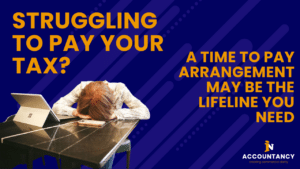In financial services, the approach of Spring means two things: the Budget (20th March this year) and the end of the tax year on Friday 5th April.
This article gives some suggestions on financial planning steps to consider before the end of the tax year so that you can make the most of your tax allowances and organise your affairs as efficiently as possible. However, the first point to make is a practical one.
Easter is early this year, falling between 29th March and 1st April. With holidays bound to impact on administration at some financial institutions, our first suggestion is that if you’re going to act before the end of the financial year, don’t leave it until the last minute. If you want to make sure your transactions are processed in time, look at the week commencing 25th March as the last practical week to implement change.
PENSIONS
Pension contributions made, receive tax relief at your highest rate of tax.
With the top rate of tax dropping from 50% to 45% on 6 April 2013, if you are considering funding your pension further, now is the time to make this contribution.
For earners over £100,000, the loss of the personal allowances kicks in leading to an effective 60% tax rate on up to £16,210 of income. Making a pension contribution is an effective way of retaining this allowance and saving tax.
If you are in receipt of Child Benefit and your income exceeds £50,000, making a further pension contribution can help retain this benefit whilst reducing tax and funding your future retirement.
Tax relief is only available for pension contributions of up to £50,000 per tax year. However, there is scope to utilise any unused allowance for previous years.
ISAS
The most tax efficient way of saving is via an ISA. The income generated is exempt from income tax and in a Stocks & Shares ISA, all gains made are also exempt from capital gains tax.
The investment limit for the current year is £11,280 per person and up to £5,640 of this can be in a cash ISA. These limits increase to £11,520 and £5,760 from 6 April 2013.
It is also possible to invest up to £3,600 into a Junior ISA for any of your children that do not have a Child Trust Fund.
CHILD TRUST FUND
If your child has a Child Trust Fund, it is possible to invest up to £3,600 into this fund for your children.
CAPITAL GAINS TAX
It is possible to generate gains of up to £10,600 this year which will be exempt for Capital Gains tax.
This allowance if not utilised cannot be carried forward into the new tax year.
This limit is per person and therefore, couples can dispose of assets held jointly to generate a gain of up to £21,200 without any tax liabilities.
Furthermore, married couples can transfer assets to each other with no tax consequences.
INHERITANCE TAX
The current nil rate band is £325,000 per person for IHT purposes.
Currently, you can gift up to £3,000 from your estate in the tax year without incurring any tax charges. Furthermore, if you did not use this limit in the previous tax year, it is carried forward to enable you to gift £6,000 this year.
In addition, it is possible to gift £250 per person each year under the small gifts exemption.
INCOME TAX ALLOWANCES
Are you and your spouse making the most of your allowances?
Consider placing all investments in the name of the lower paid spouse to ensure the lowest amount of tax possible is paid on the income generated.
CHILD BENEFIT
If you anticipate your income for the next financial year to be in excess of £50,000 and your family currently receive Child Benefit, you should consider registering to stop payment of this benefit.
Continuing to receive this income means that you will have to complete a tax return to repay any Child Benefit you were not entitled to.
Hopefully, this is a useful overview of the tax planning opportunities available to you before the end of the tax year. If you would like any further advice or would like to discuss your options in more detail, please contact Christine Wallwork ([email protected]).






